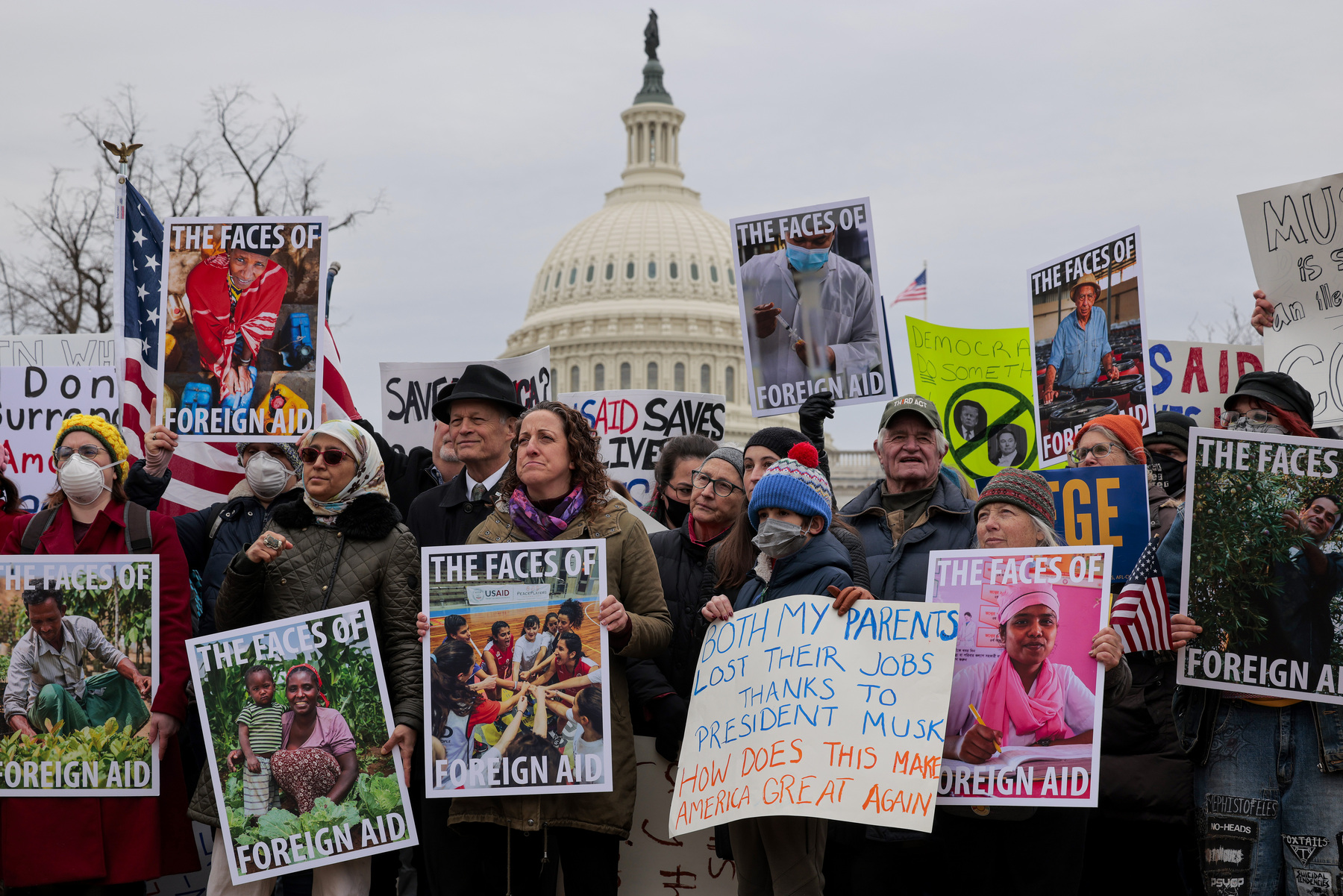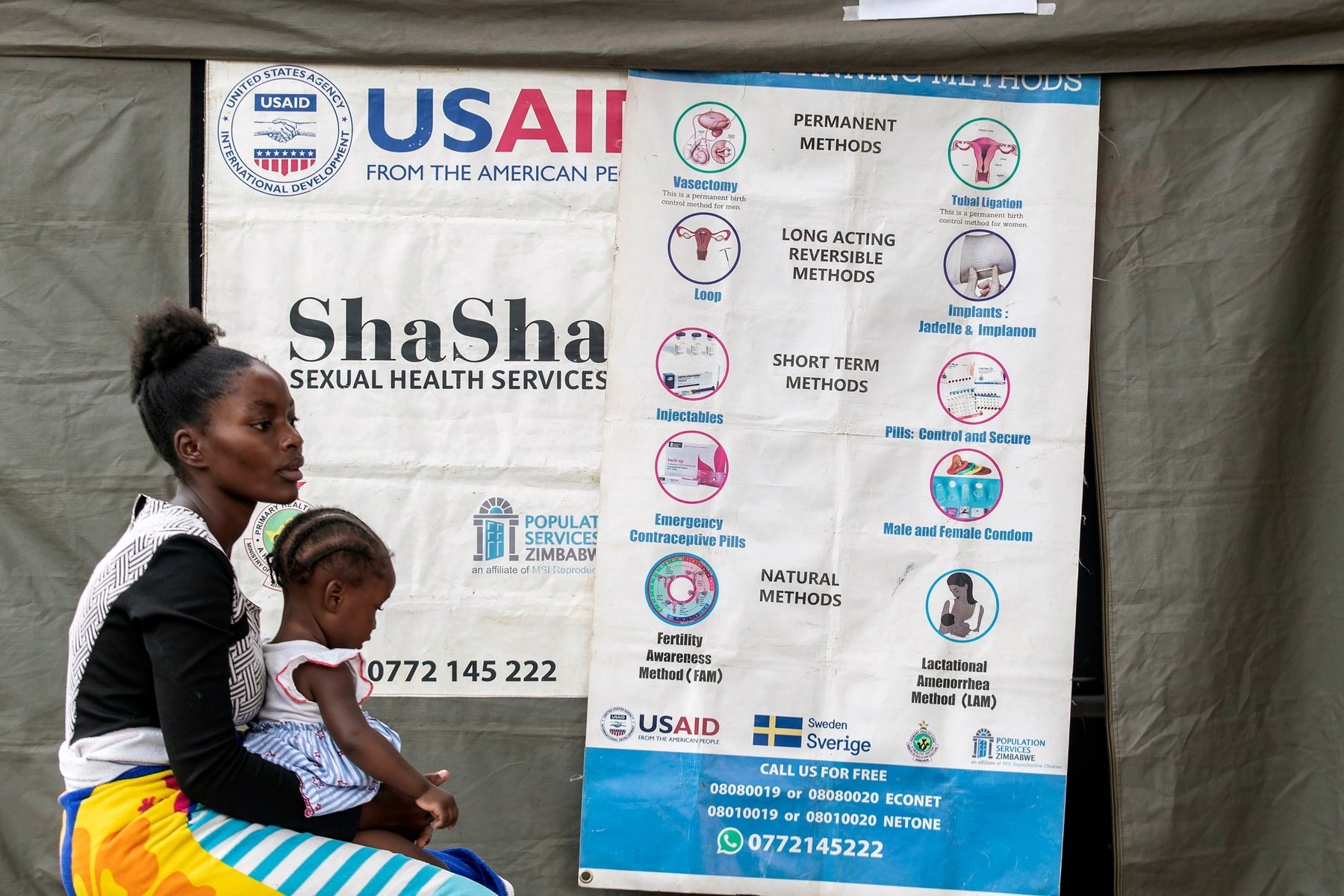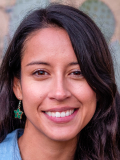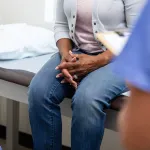On Sunday, Elon Musk, the world’s richest man, boasted that he was gutting the federal agency tasked with providing foreign aid to its poorest.
“We spent the weekend feeding USAID into the wood chipper,” Musk, the tech billionaire head of the so-called Department of Government Efficiency, posted on his social media platform, X.
The United States Agency for International Development (USAID) was established in 1961 to provide foreign assistance to impoverished countries around the world through food aid and humanitarian and economic development work. It is also one of the world’s largest providers of contraception through its family planning program. According to the Congressional Research Service, the agency’s funding in 2023 was about $40 billion, which represented less than 1 percent of the federal budget.
Beth Schlachter, senior director of U.S. engagement for MSI Reproductive Choices, a global non-governmental organization (NGO) that provides contraception and abortion care, said Musk’s comment made her feel sick.
“You can just hear the cavalier, malicious, cruel approach to it as they’re laughing,” she said, referring to a conversation Musk broadcast earlier in the day on his platform about the cuts. “I can’t get past it. It’s so malicious and disgusting. You have to believe that the cruelty is the point.”
Schlachter has worked for decades at both the State Department and with NGOs on programs that build up support for sexual and reproductive health rights, maternal care and access to contraception globally with USAID funding. (MSI Reproductive Choices recently lost $14 million due to refusal to comply with Trump administration rules.) She’s seen the ways USAID funding has saved lives through its family planning initiatives. Now she worries about the immediate fallout for people across the world. She and other experts say women and LGBTQ+ people will face significant and deadly consequences because of an abrupt pause in aid.
“There will be maternal deaths, and there will be unintended pregnancies,” she said.
USAID started its family planning program in 1965 as an anti-population growth initiative, Schlachter said. “[It was] really a racist program to ensure that Black and Brown people had less babies. But it morphed over time into being the backbone of the reproductive health sector within global health.”
Experts say the family planning work, which ranges from sexual education, access to contraceptives, and maternal and infant health, have all been implemented as a way to bolster the human rights of women and girls around the world. By giving people the ability to delay pregnancy into adulthood, and the choice to go to school or have fewer children, they and their families are healthier.
“Ultimately, in planning their families, their children are more prosperous. They themselves are able to work now,” said Onikepe Owolabi, director of international research at the Guttmacher Institute, a Washington-based organization that tracks reproductive health policy.
USAID has been rocked by the Trump administration after an executive order signed on his first day in office halted all foreign funding for 90 days and a stop work order issued on January 24 for all existing foreign assistance awards. While a waiver was issued a week later to continue funding for “life-saving humanitarian assistance,” family planning was specifically excluded from the action. Separate from the executive orders, it was reported by the New York Times on Thursday that nearly all staff from the agency of about 10,000 employees would be let go.
Secretary of State Marco Rubio has been announced as the acting administrator for the agency — signaling a potential, though according to legal experts not constitutional, move to dissolve the agency’s functions into his department. The State Department did not respond to a request for comment.
For over a decade, USAID has spent about $600 million annually for its family planning work.
“The good that money has done is unquantifiable,” Owolabi said. She received training through a USAID-funded program for HIV prevention and treatment and family planning while she was a medical student in Nigeria.
She’s seen how that money has led to better maternal health outcomes and helped combat HIV in places like Rwanda and Uganda through training doctors and providing supplies and antiretrovirals to clinics. Now she’s hearing accounts of how that work has been affected.
“Imagine a rural area in Uganda, a small health outpost where women will come with their babies for care, or their pregnancy, or [where a] child can receive immunization, or for family planning counseling,” she said. “The staff can’t work because of the stop work order, the drugs, the medications, the commodities … are no longer available because USAID is one of the largest procurers and suppliers of commodities in this country. So you handicap health workers, you handicap the health system. You hold the logistics and supply chain ransom.”

As of 2023, 67 percent of contraceptives supplied through USAID went to Africa, where some of the leading causes of death for girls and women are related to pregnancy and sexually transmitted infections like HIV. According to an analysis by the Guttmacher Institute, if no contraceptive care is provided by USAID in 2025, that will lead to about 4.2 million unintended pregnancies and over 8,000 deaths related to pregnancy and childbirth complications.
“Women will die as a result of this decision,” said Rachel Clement, senior director of government relations at PAI, a global advocacy group. “Those people will die from preventable maternal mortality causes.”
Owolabi said even Momentum, a program implemented during the first Trump administration to help women survive childbirth in places like India, Senegal and Nigeria, has been shut down. One of the initiatives under the program was created to reduce maternal and infant mortality by training doctors on how to perform cesarean sections and other types of lifesaving procedures, as well as how to insert and take out intrauterine devices. Without that critical care, “they are exposing women with complicated pregnancies, a majority of who are low income, to die simply because they can’t access it,” she said.
The pause on family planning work has also impacted the United Nations Population Fund, the UN’s sexual and reproductive health agency. USAID provides between 40 to 50 percent of the funding that goes to humanitarian work at the UN.
This includes maternal health programs in Afghanistan, where the UN has had a presence for about 40 years. Up until the funding pause, the UN was able to continue providing that care through midwives that worked in rural health clinics in mountainous regions of the country.
“We try to have a midwife in every single one of [the clinics], and we have over 1,700 midwives that are supported by U.S. funds that are mostly frozen right now,” a UN official said.
Prevention and care for HIV is another concern for advocates. While the State Department issued a waiver to continue providing funding for HIV treatment, experts say it’s still not reaching clinics on the ground through programs like the U.S. President’s Emergency Plan for AIDS Relief. The global program, known as PEPFAR, has been credited with saving more than 26 million lives through providing access to antiretrovirals, which suppress the virus, and preventing the spread of HIV in 5 million children, according to UNAIDS, the United Nations program on AIDS.
While the State Department funds the program, much of the work is implemented by USAID. According to reporting from The New York Times, no money has been distributed from USAID since the initial freeze on foreign assistance, and stop work orders are still in effect. Groups on the ground are waiting for instructions to restart work, but so far none have been issued. As a result, hundreds of organizations had to halt services, according to The New York Times.
Once someone stops taking antiretrovirals, the virus can become detectable again within a few weeks, making people more likely to transmit it to others. A temporary disruption to the medication can also lead to drug resistance for someone with HIV, making their regimen less effective. PEPFAR also pays for PrEP, a medication that protects those at high risk of contracting HIV. According to the State Department, PEPFAR accounts for 90 percent of PrEP treatment initiations globally.
While advocates say HIV treatments could resume under the State Department program, new executive orders aimed at weeding out “gender ideology” and DEI in the department mean it may not serve those most at risk of exposure to HIV.
“Are they going to allow men who have sex with men? Are they going to include female sex workers, who have the highest risk of HIV transmission, in programming?” Owolabi asked. “Or are they going to impose their values on programming, and thus not going to protect the most at risk?”
Correction: An earlier version of this article stated MSI Reproductive Choices did not receive USAID funding.






